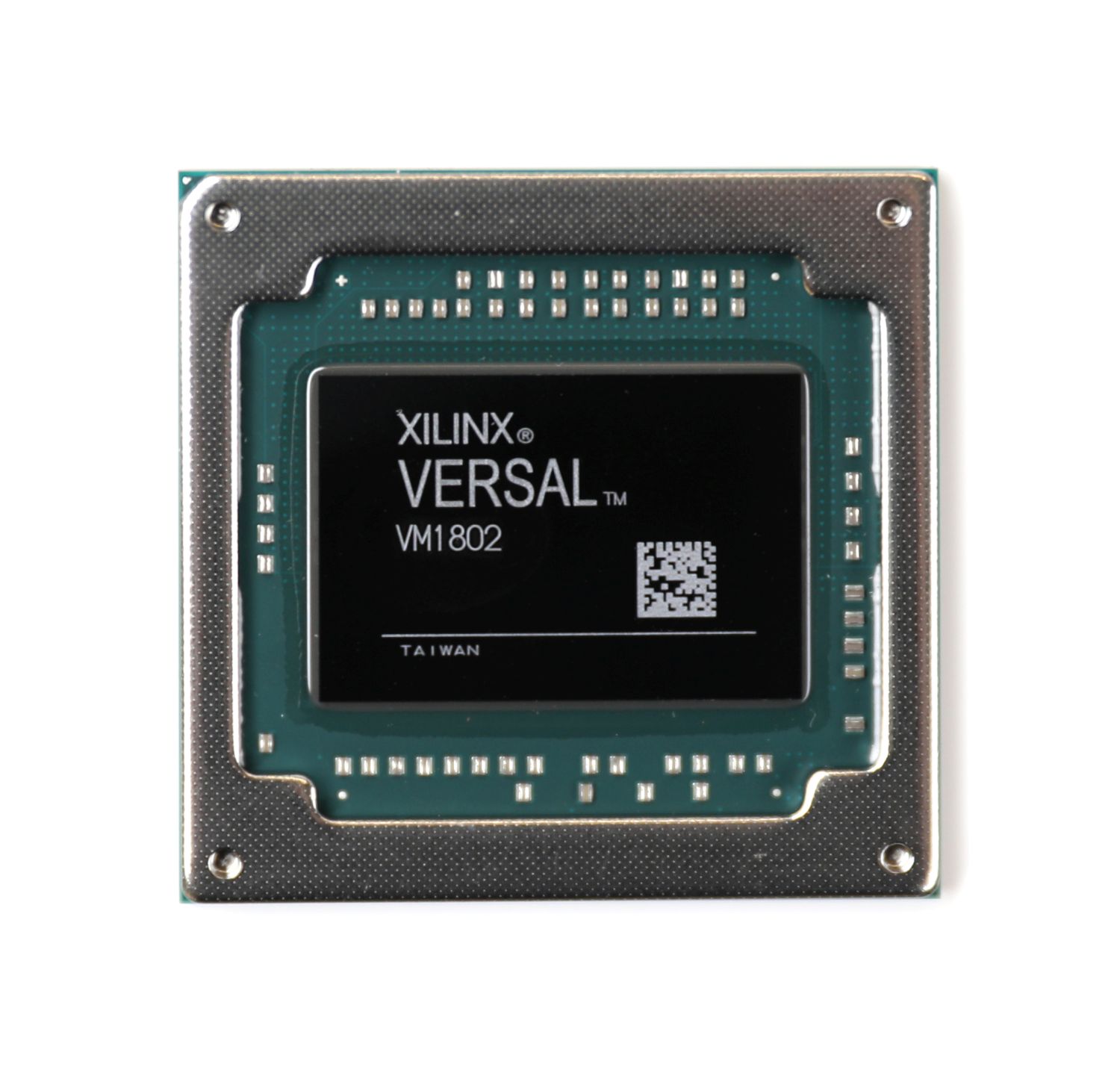Shipping to tier-one customers is an important step for this innovative product as the Versal Adaptive compute acceleration platform (ACAP), combines a new category of heterogeneous compute device that can exceed the conventional CPU, GPU or FPGA approach.
An ACAP represents a highly integrated, multicore, heterogeneous compute platform that can be changed at both the hardware and software levels to dynamically adapt to the needs of a wide range of applications and workloads in data center, automotive, 5G wireless, wired and defense markets. The key advantage is that the hardware can be adjusted just as in the traditional FPGA approach, but there are silicon paths optimized for the AI that will do things much faster than any traditional FPGA. Versal ACAP enables you to get the best of both worlds, hardware, and software programmability.
Adaptable AI, 5G, cloud solution
Versal is built from the ground-up to be natively software programmable, features a flexible, multi-terabit per-second network-on-chip (NoC). The NoC seamlessly integrates all engines and key interfaces, making the platform available at boot and easily programmed by software developers, data scientists, and hardware developers alike. Xilinx has worked hard to an provide a host of tools, software, libraries, IP, middleware, and frameworks that will enable that ACAPs dynamically customizable accelerated computing solutions through industry-standard design flow.
“Having our first Versal ACAP silicon back from TSMC ahead of schedule and shipping to early access customers is a historic milestone and engineering accomplishment. It is the culmination of many years of software and hardware investments and everything we’ve learned about architectures over the past 35 years,” said Victor Peng, president, and CEO of Xilinx. “The Versal ACAP is a major technology disruption and will help spark a new era of heterogeneous compute acceleration for any application and any developer.”
7nm adaptable chip
7nm is the buzz word, and the versatility of the platform makes it unique to a market. The Versal ACAP portfolio is the first platform to combine software programmability with dynamically configurable domain-specific hardware acceleration and the adaptability to enable businesses to keep up with today's rapid pace of innovation. A mix of next-generation scalar engines for embedded compute, adaptable engines for FPGA silicon programmability, and intelligent engines for AI inference and advanced signal processing deliver dramatic improvements in raw performance and performance per watt compared to CPU and GPU implementations.
There are multiple tiers of Versal product and Versal AI Core series delivers the portfolio highest compute and lowest latency, enabling breakthrough AI inference throughput and performance through the AI Engine. This one is targeting AI burdened workloads, and since this market is exploding right now, Xilinx is just in time to leverage and capture a lot of new business.
The AI series is optimized for cloud, networking, and autonomous technology, offering the highest range of AI and workload acceleration available in the industry. The Versal Prime series is designed for broad applicability across multiple markets and optimized for connectivity and in-line acceleration of a diverse set of workloads.
Both the Versal AI, Core series and Versal Prime series, include multiple devices, each with dual-core Arm Cortex-A72 application processors, dual-core Arm Cortex-R5F real-time processors, over 2 million logic cells of adaptable hardware, and over 3,000 DSP engines optimized for high-precision floating point and low latency. Versal AI Core devices offer up to 400 AI Engines optimized for AI inference and advanced signal processing workloads.
The Versal portfolio includes four additional series of devices, each uniquely architected to deliver scalability and AI inference capabilities for a host of applications across diverse markets, from cloud and networking to wireless communications, edge computing, and endpoints.
Today’s announcement is just the beginning as general availability expected in the second half of 2019. Xilinx is having its Xilinx Developers Conference on October 1-2 and promises a live product demonstration of Versal ACAP which is a good date as any to target with wide availability. The conference talks place in Fairmont Hotel San Jose, a please we frequently visited over the years.
AI competitor
Xilinx is fighting some AI heavyweights including Nvidia with this product, and it brings the hardware programmability into the mix, something that Nvidia doesn’t have. Algorithm innovations are outpacing the time to build a Silicon-based ASIC chip, and therefore, Versal can swoop in and take some significant bite in AI, 5G, data center market. Versal can be quickly adapted to accelerate the new AI algorithm in hardware something that ASIC cannot. In 5G the new standard and innovation happen biannually if not faster and the ability to adapt your hardware to a new 3GPP latest configuration saves a carrier a lot of costly trouble of replacing ASIC based solution in the infrastructure.
In the data center, providers like Netflix or Amazon can adjust the data center for new power and bandwidth saving algorithm in a matter of days, and still, have the newest latest, and greatest video codec accelerated in adaptable hardware.
These are just some of the examples that are easy to comprehend, but we have to give it up for a Xilinx leadership under CEO Victor Peng as the Versal looks like a great competitor, a very balanced product that will save many industries a lot of time, heat and cost and make the powerful AI computing green.




